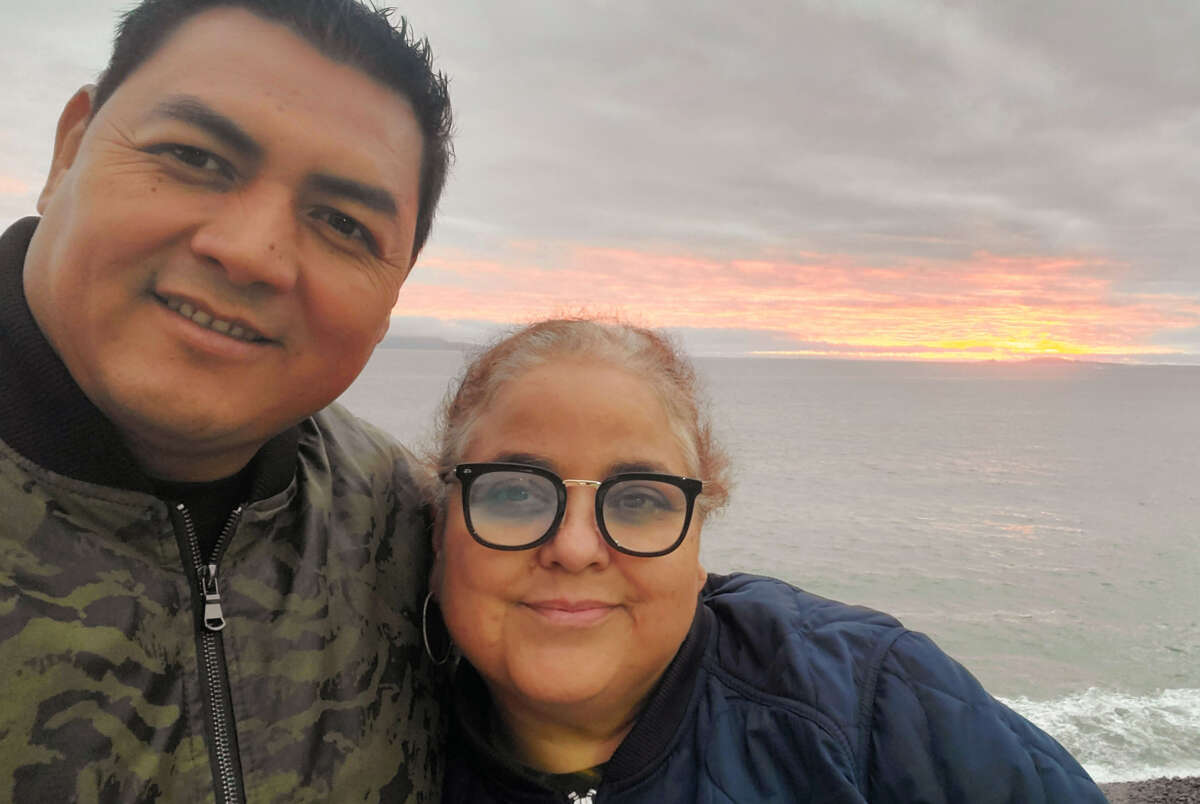The conservative majority on the Supreme Court ruled 6-3 on Friday against a woman who has fought for years to bring her husband back from El Salvador to the United States. Like the couple’s child, Sandra Muñoz is a U.S. citizen, but in 2015 an official at the U.S. consulate in El Salvador denied her husband’s visa application with little explanation. Muñoz later learned in federal court that a consulate official was concerned about her husband’s tattoos.
Writing for the majority, Justice Amy Comey Barrett argued that the government’s interest in enforcing immigration law outweighs Muñoz’s right to marry and live with her husband in the United States. Barrett asserted that U.S. citizens do not have a constitutionally protected interest in whether their noncitizen spouses are allowed in the country, arguing that Muñoz is free to live with her husband in El Salvador instead.
In a blistering dissent, Justice Sonya Sotomayor said the majority is setting a dangerous precedent for families navigating a complex immigration system with limited resources. Sotomayor also warned that the ruling erodes rights established when the court legalized gay marriage in 2015. As a result, same-sex couples who are married in the U.S. could be forced to move to countries where gay marriage is illegal if permanent residency for one spouse is denied.
“The constitutional right to marriage is not so flimsy,” Sotomayor wrote. “The government cannot banish a U.S. citizen’s spouse and give only a bare statutory citation as an excuse.”
Sandra Muñoz is a California-based civil rights attorney who met her husband, Luis Asencio-Cordero, in 2008. The couple married in 2010 and have one child who is a U.S. citizen. Muñoz petitioned in 2013 to make her husband a lawful permanent resident. After conducting a background check, the Department of Homeland Security determined that Asencio-Cordero was not a security threat.
Asencio-Cordero was not “inspected” at the border when he originally entered the U.S., so the next step for the family was a trip to El Salvador in 2015 for a visa interview at the U.S. consulate. The couple expected a brief visit, but the visa application was denied. Asencio-Cordero is still stuck in El Salvador 10 years later.
Muñoz has faced life’s challenges without her husband at her side, including medical issues and the recent deaths of her sister and mother, according to attorneys at the National Immigrant Justice Center (NIJC) who represented the couple.
“They have been separated for nearly a decade because they tried to follow the rules of the immigration system, they jumped through all the hoops as they were expected to do,” Keren Zwick, director of litigation at NIJC, told Truthout.
Asencio-Cordero does not have a criminal record, but his application was denied after a series of interviews. The consulate did not provide an explanation, instead citing a statute that blocks a noncitizen from entering the country if an official has reason to believe the individual “seeks to enter the United States to engage solely, principally or incidentally in” certain criminal offenses or “any other unlawful activity.”
After filing a lawsuit against the State Department, the couple and their attorneys learned through discovery that the consular official suspected that Asencio-Cordero’s tattoos were gang related. Asencio-Cordero flatly denied being a gang member and said he got the tattoos as a teenager. The family found an outside expert to testify that the tattoos have nothing to do with networks of gangs in the U.S. and El Salvador.
As the legal battle continued, the Ninth Circuit Court of Appeals ruled that the State Department violated Muñoz right to due process by failing to provide a factual reason for the denial of her husband’s visa in a timely manner. By the time the family learned the reason for the denial — after three years of litigation — it was too late for the visa to be reconsidered.
However, the Supreme Court reversed the Ninth Circuit decision, ruling that a U.S. citizen “does not have a fundamental liberty interest in her noncitizen spouse being admitted to the country.” Muñoz argued her right to marriage is deeply rooted in U.S. tradition, but in her majority opinion, Barrett argued that the admission of noncitizens into the U.S. is a “favor” and not a “right.”
Zwick said the ruling closes the door to similar litigation, so the next family in this situation won’t be able to rely on discovery in the courts to find out why a visa was denied. More families could be blocked from mounting a successful challenge to immigration decisions that discriminate based on race, country of origin or even faded tattoos.
“The court went really far out of its way to hold that that U.S. citizens do not have a constitutionally protected interest in their spouse’s immigration status,” Zwick said. “That conclusion is not only fundamentally flawed but it was also unnecessary for the court to get there.”
Press freedom is under attack
As Trump cracks down on political speech, independent media is increasingly necessary.
Truthout produces reporting you won’t see in the mainstream: journalism from the frontlines of global conflict, interviews with grassroots movement leaders, high-quality legal analysis and more.
Our work is possible thanks to reader support. Help Truthout catalyze change and social justice — make a tax-deductible monthly or one-time donation today.
